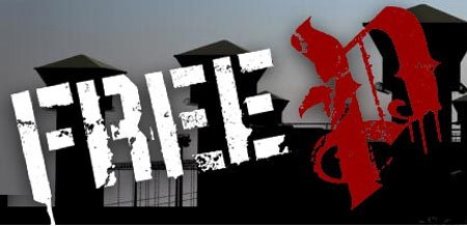WEAPONS OF CHOICE
State: Just in case, we'll take your gun
Cops allowed to seize firearms even before crime is committed
Posted: August 04, 2008
10:05 pm Eastern
© 2008 WorldNetDaily
A new report to the Connecticut state legislature shows police have used the state's unique gun seizure law to confiscate more than 1,700 firearms from citizens based on suspicion that the gun owners might harm themselves or others.
The state's law permits police to seek a warrant for seizing a citizen's guns based on suspicion of the gun owner's intentions, before any act of violence or lawbreaking is actually committed.
The law was first proposed in 1998, following a mass shooting at the Connecticut Lottery Corporation that left five dead, including the gunman. Since the law went into effect on Oct. 1, 1999, according to new Office of Legislative Research report, police have made more than 200 documented requests for warrants to seize firearms from citizens, and only two of the requests have been denied.
The law has remained hotly debated since its passage, as some point to possible murders and suicides it may have prevented and others worry that police would abuse the law.
"It certainly has not been abused. It may be underutilized," Ron Pinciaro, co-executive director of Connecticut Against Gun Violence, told the Waterbury Republican American. "The bottom line from our perspective is, it may very well have saved lives."
Attorney Ralph D. Sherman, who has represented several of the gun owners whose firearms were confiscated under the law, disagrees.
"In every case I was involved in I thought it was an abuse," he told the newspaper. "The overriding concern is anybody can report anybody with or without substantiation, and I don't think that is the American way."
Joe Graborz, executive director of the Connecticut Civil Liberties Union, an affiliate of the ACLU, told WND the law "continues to invest unusual and far-reaching powers in police authority that does not belong there" by requiring "police to act as psychologists in trying to predict and interpret behavior."
"What is the standard of proof on this?" he asked. "The way this law is written, it can and will be easily abused by police."
Under the statute, dubbed the "turn in your neighbor" law by opponents, any two police officers or a state prosecutor may seek a warrant, following a specified process of investigation, to confiscate guns from people deemed a risk to harming themselves or others. The vast majority of cases, however, begin when a person – usually a spouse or live-in, according to the OLR report – file a complaint.
Shortly after the law was passed, Thompson Bosee, of Greenwich, Conn., had his guns and ammunition seized by police. Bosee told WND in 1999 that he suspects a neighbor, with whom he has had words regarding the neighbor's driving on Bosee's property, might have reported him.
"They had a warrant for my guns, they arrested my guns," said Bosee. A member of both the NRA and the American Gunsmithing Association, Bosee said he works on his guns in his garage and is not ashamed of it.
Although Greenwich Police would not comment, they released a list of the guns and ammunition they seized from Bosee, including six handguns, three rifles, one shotgun, one submachine gun and 3,108 rounds of ammunition.
The new OLR report shows that in most cases, relatives or neighbors of the gun owner filed the complaint when they feared for their own safety or feared the owner was suicidal. In a case from Southington, however, a man had his gun taken for threatening to shoot a dog.
Attorney Ralph Sherman told WND the law's cruelty to animals justification for gun seizure worries him.
"If I throw a rock or a newspaper at a dog in my yard or in my garden, that doesn't mean I'm mentally unbalanced," he said. "What if a neighbor doesn't like me and sees that?"
In October 2006, according to the Republican American, police obtained a seizure warrant after a man made 28 unsubstantiated claims of vandalism to his property. The police application for seizure described the man as paranoid and delusional, citing extensive self-protection measures installed on the man's property, including alarms, cameras and spotlights.
Four months after the man's guns were taken, a judge ruled that police had failed to show the man posed any risk and ordered the guns returned. According to the ruling, the gun owner had no history of documented illness, criminal activity or misuse of firearms. "In fact, the firearms were found in a locked safe when the officers executed the warrant," the ruling said.
The law dictates that courts hold a hearing within 14 days of a seizure to determine the eventual fate of the guns. In most cases, according to the OLR report, the guns are held for a period of up to a year, destroyed or sold. The Rupublican American reports that in 22 of the more than 200 cases, the guns were ordered returned.
Connecticut State Rep. Michael P. Lawlor, House chairman of the Judiciary Committee and one of the chief authors of the law, told the Republican American he wasn't aware of any pending challenges to the law's constitutionality.
"The whole point was to make sure it was limited and constitutional," he said.
Sherman however, said the law hasn't been challenged yet simply because it is used sparingly and a test case would prove too costly for the average gun owner.
Tuesday, August 5, 2008
Subscribe to:
Post Comments (Atom)























































































































































































































































.jpg)








































































































































































































































































































































































































































































































































































































































No comments:
Post a Comment